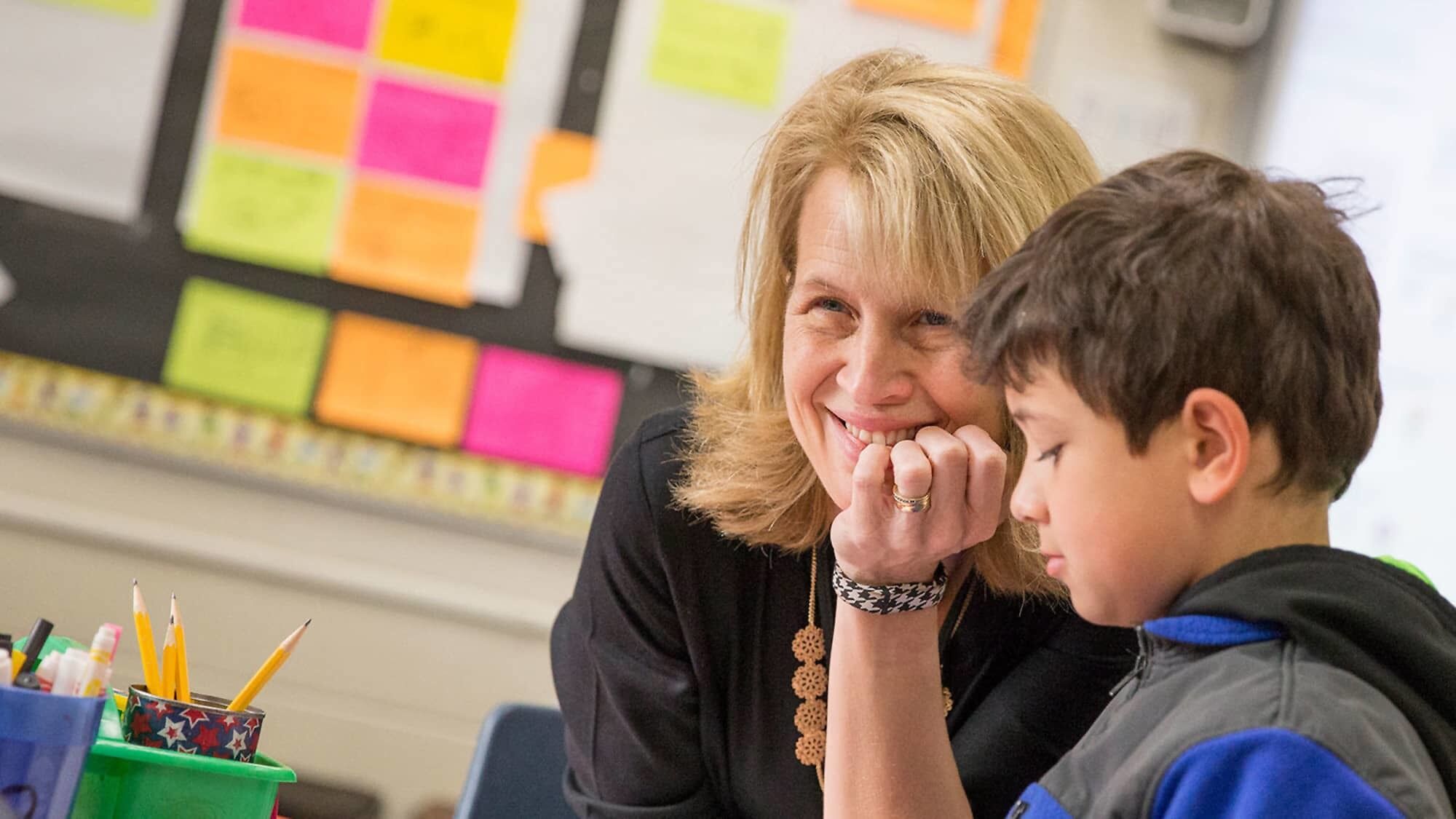Amy Sippert likes to quote the “wise Donald Graves” who said: “The teacher is the chief learner in the classroom.”
She continues: “I believe this is the heart of all National Writing Project work. Teacher-consultants are agents of reform and classroom innovation because they strive to immerse themselves in continued growth as educators.”
For the majority of Amy Sippert’s extensive career, she has taught first grade in Oshkosh, Wisconsin. In the years following her attendance at the Fox Valley Writing Project, she honed her practice in helping our youngest writers get started with literacy.
“Thanks to the ISI, I knew firsthand writing was messy and personal; gratifying yet filled with stops and starts. The students and I grew together. We wrote and conferred, taking one workshop at a time. As the children selected their own topics and shared their lives with the world, they flourished.”
Soon her reputation, built on the success of her students, was noticed and she began presenting her work with writing workshops for first-graders to a few nearby districts and another university.
Sippert knew it was time to take a next step as a teacher-leader when Nichole Ponzer, fellow teacher-consultant and FVWP leadership team member, asked if she’d be interested in working with the local site as a teacher-leader. “It was evident agreeing was the only option!” she adds.
Sippert’s team worked together to develop and implement two grants for Supporting Effective Educators Development (SEED) in the Oshkosh Area School District focused on serving high-needs schools by providing an institute experience for teachers centered on inquiry projects, embedded coaching, and time to consult with experts. Teachers designed inquiry projects specific to their needs and interests; topics varied from effective conferencing to creating a digital newspaper for the school.
Later, Sippert led her colleagues at the Merrill School in developing a Family Academic Literacy Project (FALP), supported by a grant to the NWP from the Kellogg Foundation. Families participated in a monthly hands-on, content-area integrated experience that they could then talk and write about. At each meeting, after families came together to enjoy a meal, they rotated through three stations designed to provide them with time to engage in an activity together. In each station, teachers briefly shared some new information, modeled brainstorming and their own writing, and then gave families a chance to talk and collaboratively write from their own funds of knowledge. At the final session, families worked together to create an anthology of some of their favorite writing from events throughout the year.
“Working with students who love to write and are brimming with enthusiasm as authors is a teacher’s dream come true,” Sippert adds. “Brainstorming with fellow educators who have a shared passion for excellent instruction lifts you up and pushes you forward as a professional. Each time I work with colleagues in leadership I come away refreshed and have new learning to share with my students and colleagues.”

